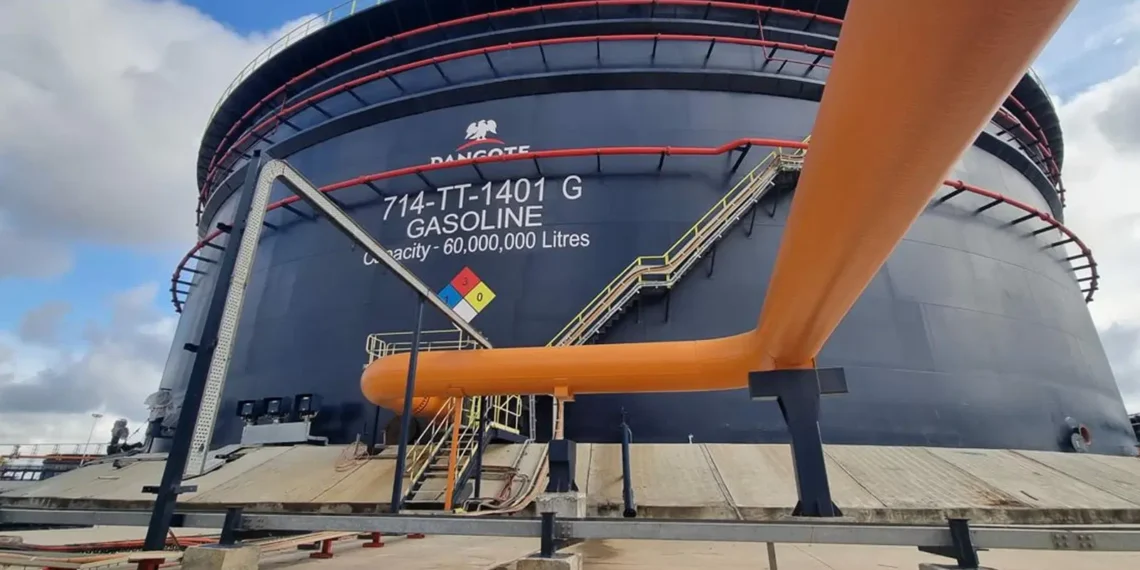In a striking contrast to global fuel price trends, Dangote Petroleum Refinery has announced a significant reduction in the ex-depot price of Premium Motor Spirit (PMS), commonly known as petrol, even as the United Arab Emirates (UAE) has increased fuel prices for February 2025.
Effective from Saturday, February 1, 2025, Dangote Refinery slashed petrol prices from ₦950 to ₦890 per liter, a move expected to provide economic relief to Nigerians. The decision comes as a response to falling international crude oil prices and an improved global energy outlook. Meanwhile, in the UAE, fuel prices have been hiked by up to 14 fils per liter, marking the first adjustment since a price freeze in January 2025.
The UAE Fuel Price Committee announced the following increases:
• Diesel: AED 2.82 per liter (up from AED 2.68)
• Super 98 Gasoline: AED 2.74 per liter (up from AED 2.61)
• Special 95 Gasoline: AED 2.63 per liter (up from AED 2.50)
• E-Plus 91 Gasoline: AED 2.55 per liter (up from AED 2.43)
Unlike Nigeria, where Dangote Refinery is making adjustments to ease inflationary pressure, the UAE’s fuel pricing system, overseen by the Ministry of Energy, revises prices monthly based on global oil price fluctuations and operational costs for distribution companies. While UAE fuel prices remain lower than they were a year ago, the latest hike signals a shift in the global energy market.
Read also: Dangote Refinery slashes petrol ex-depot price
For Nigeria, Dangote Refinery’s move is set to impact transportation costs, goods and services pricing, and the overall cost of living. The refinery urged fuel marketers to pass the benefits down to consumers, reinforcing its alignment with President Bola Ahmed Tinubu’s economic recovery plan aimed at making Nigeria self-sufficient in refined petroleum products.
This development highlights the contrasting economic approaches between Africa’s largest economy and the Middle East’s leading oil producer. As fuel prices fluctuate globally, all eyes remain on how these shifts will influence regional economies and consumer behaviour.






